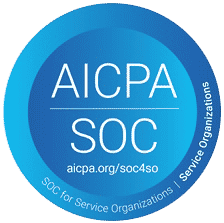Beyond shift work, it’s hard to imagine that the manufacturing, energy, and public sectors have much in common. All three industries have different metrics for success; manufacturers are expected to hit their projected number of work orders, energy producers must keep up with demand in an increasingly regulated environment, and government agencies are defined by their (harder to quantify) mission work.
But one rather insidious workforce management problem is rooted in each industry’s scheduling process: unqualified people are being assigned to jobs, putting organizations at risk of non-compliance.
If you aren’t scheduling based on skills, then you aren’t properly scheduling. Here’s a deeper look into how inadequate qualification management is affecting each industry—and how to fix it.
Qualification Management in the Manufacturing and Food Processing Industries
Manufacturing as a whole has a bit of a PR problem, thanks to an inaccurate perception of what the industry has to offer. The lack of interest younger generations have in taking up manufacturing positions have caused a major skills shortage.
Naturally, it’s easy to have a “beggars can’t be choosers” mentality when it comes to scheduling; it’s simple to justify scheduling a person to work a much-needed job when their certifications only just expired. But cutting corners with safety—particularly around such heavy, dangerous equipment—should never be justified. Certifications are there for a reason: to ensure that every individual is following proper training, safety, and quality assurance protocols that would otherwise threaten those on the factory floor.
More specifically, food processing manufacturers have an extra QA burden to carry. Contamination makes people sick, so food processors have intense guidelines to follow to quell public health concerns. As part of the 7 mandatory Food Safety Modernization Act rules all large and small food processors are expected to follow, each facility needs to ensure that their Food Safety Plan, associated training schedules, and employee certifications are centralized and easily accessible—so accessible that you can send them to the FDA within 24 hours, for records going back for up to two full years prior to the request.
Proper certification and skills tracking are central to compliance as employee records are one of the first things an auditor will ask to see. For manufacturers, it’s clear just how integral skills-based scheduling is to meet regulatory standards.
Qualification Management in the Energy Industry
Energy producers are also facing a labor shortage. Engineering positions have been among the hardest to fill in the US for nine years in a row. Like manufacturing, this puts pressure on the energy/utilities sector to put ‘just about anyone’ on the job for the sake of getting the job done.
Overburdening employees with extra work goes against fatigue management regulations because it is dangerous; that’s why basic fatigue management like limiting the number of hours worked and ensuring proper time off between shifts are industry rules, not perks. In the same vein, lack of proper training and putting unqualified employees on the job is also dangerous.
With heavy physical labor and harsh environmental conditions, skilled, competent workers are required. Training needs to be maintained to the utmost accuracy.
But there’s clearly a disconnect. Lack of proper training is one of the most common OSHA penalties. Meanwhile, the number of US fatalities in oil and gas is 7x higher in comparison to other industries. Simple human error is the number one culprit, not mechanical failure.
These findings are sobering. Workers (and the community the plant or refinery is located in) are put in vulnerable, potentially life-threatening positions when training isn’t being done properly and scheduling isn’t truly skills-based.
Qualification Management in the Public Sector
For HR and Operations, maximizing employee performance while being expected to control costs is a daunting task. But the pressure is really on for government agencies.
When OMB’s Memo M-17-22 was announced in April 2017, agencies were tasked with submitting a proposal for how they will make effective cuts to their federal civilian workforce. Since February 2018, OMB has been tracking agencies’ progress.
With the pressure to do more with less, it’s easy to see how law enforcement, public transportation, and other large public service organizations have been making headlines for egregious amounts of overtime and inflexible scheduling practices.
A large government agency even culminated nearly $10 million in fines after unqualified employees were caught working specific positions for years. This was specifically due to lack of proper records and controls surrounding certification and qualification management.

Achieve Skills-Based Scheduling
Hefty compliance fines and hazardous working conditions are the common issues attached to putting unqualified employees on the job. So how do you fix it?
You need a solution that allows for the automatic prevention of scheduling an employee to a particular job if they fail to meet certain criteria.
You can’t do this if you’re tracking skills, certifications, and expiration dates in an excel spreadsheet. And you especially can’t do this if that crucial employee information is not even available to person actively creating the schedule.
You can do this, however, with an automated scheduling solution that has an integrated qualification management system (QMS). That way, you’ll have access to a skills matrix right at the point of scheduling. With multiple tie-breakers and preventative controls, you know that the most optimal—and available, in accordance to compliance rules—employee is allocated to the right location.
Ensure Proper Qualification Management With Indeavor
Want to ensure that only qualified workers will be assigned to each position? Learn more or request a demo here.
Indeavor’s solution offers clients an end-to-end, cloud-based employee scheduling and absence management system. By integrating with your human capital management and enterprise resource planning systems, you can leverage a robust platform that provides you with real-time employee data. Relieve your supervisors of manual tasks and the constant mental fatigue brought upon by scheduling changes by automating the entire process, connecting the data to all of your existing corporate systems, and ensuring you always have the right qualified employee in each position.







